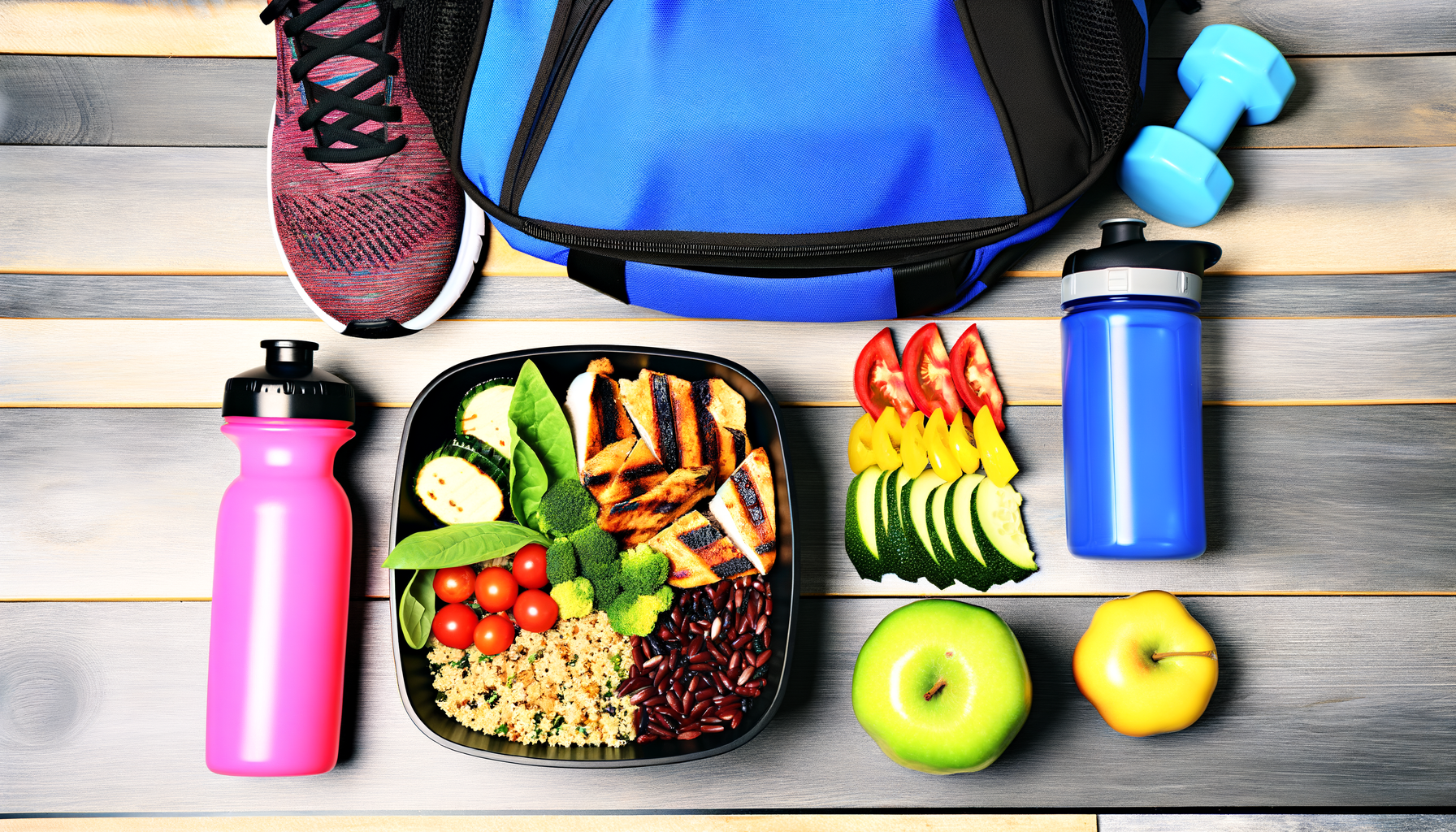Optimizing Your Workout Routine with Calorie Data
When it comes to maximizing your workout performance and recovery, understanding and utilizing calorie data is crucial. This involves not only knowing what to eat before and after your workout but also how to balance your macronutrients effectively. In this article, we will delve into the world of pre-workout nutrition, post-workout recovery, and how to optimize your performance using calorie data.
Understanding Pre-Workout Nutrition
Pre-workout nutrition is essential for fueling your body before exercise. The key is to consume a balanced meal that includes carbohydrates, protein, and fats. Here’s how you can optimize your pre-workout meal:
A combination of carbohydrates and protein is highly recommended for pre-workout meals. Carbohydrates help maximize your body’s ability to use glycogen to fuel short and high-intensity exercises, while protein helps improve muscle protein synthesis and prevent muscle damage.
For example, if your workout starts within 2-3 hours, consider eating a complete meal containing carbs, protein, and fat. Some good options include a protein smoothie made with milk, protein powder, banana, and mixed berries, or whole-grain cereal with milk. If your workout is within an hour or less, opt for something lighter like Greek yogurt and fruit or a nutrition bar with protein.
It’s also important to consider the timing of your meal. Ideally, you should eat 2-4 hours before your workout, allowing for up to 1,000 nutritious calories. If you have less time, a smaller meal of 300-400 calories about an hour before the workout can suffice.
The Role of Supplements in Pre-Workout Nutrition
Supplements can also play a significant role in enhancing your workout performance. Here are some of the most commonly used pre-workout supplements:
Creatine is one of the most popular sports supplements, known for increasing muscle mass, strength, and power while delaying fatigue. It is effective when taken both before and after a workout, with a recommended daily dose of 3-5 grams.
Caffeine is another well-known performance enhancer, improving strength, power, and reducing fatigue. It can be consumed in various forms such as coffee, tea, or energy drinks, and its peak effects are seen 90 minutes after consumption.
Multi-ingredient pre-workout supplements combine various ingredients like caffeine, creatine, beta-alanine, and BCAAs for synergistic effects. These should be taken about 30-45 minutes before exercise.
Hydration: A Critical Component of Performance
Good hydration is essential for maintaining and enhancing performance. Dehydration can lead to significant decreases in performance, so it’s crucial to drink water and sodium-containing beverages before exercise to promote fluid balance. The American College of Sports Medicine recommends drinking beverages slowly at least 4 hours before exercise and consuming a beverage or snack with sodium to help retain fluids.
Post-Workout Recovery Nutrition
Post-workout recovery nutrition is just as important as pre-workout nutrition. Here’s how you can optimize your recovery using calorie data:
After a workout, your body needs to replenish glycogen stores and repair muscle tissue. Consuming a meal rich in carbohydrates and protein within 30-60 minutes after your workout can help with this process. Aim for a ratio of 3:1 or 4:1 carbohydrates to protein.
For example, a meal consisting of whole-grain toast with almond butter and a banana, or a protein shake with milk and fruit, can provide the necessary nutrients for recovery.
Using Calorie Data to Optimize Your Nutrition Plan
To optimize your pre and post-workout nutrition, it’s essential to understand your calorie needs. Here’s how you can use calorie data effectively:
First, calculate your daily calorie needs using a calorie calculator. This will give you a baseline for your overall calorie intake. Then, adjust your pre and post-workout meals based on your specific calorie needs and the type of exercise you are doing.
For instance, if you are engaging in high-intensity exercise, you may need more carbohydrates to fuel your workout. Conversely, if you are doing resistance training, you may need more protein to support muscle growth and repair.
Real-World Examples and Case Studies
Let’s consider a real-world example to illustrate how calorie data can be used to optimize pre and post-workout nutrition:
Suppose you are a 150-pound athlete preparing for a high-intensity workout. According to the recommendations, you should consume about 1 gram of carbohydrate per kilogram of body weight 1 hour before working out. This translates to about 68 grams of carbohydrates, which could be achieved by consuming ½ cup oatmeal, 1 small apple, ½ cup low-fat yogurt, and 4 ounces of 100% fruit juice.
After your workout, you would aim to consume a meal rich in carbohydrates and protein to aid in recovery. For example, a meal consisting of whole-grain toast with almond butter and a banana would provide the necessary nutrients for recovery.
Conclusion and Next Steps
Optimizing your pre and post-workout nutrition using calorie data is a powerful way to enhance your performance and recovery. By understanding the importance of carbohydrates, protein, and hydration, and by using supplements effectively, you can tailor your nutrition plan to meet your specific needs.
For more detailed guidance on how to calculate your calorie needs and plan your meals, consider using tools like the Calorie Calculator Cloud to help you make informed decisions. Remember, everyone’s nutritional needs are different, so it’s important to experiment and find what works best for you.
By combining the right pre-workout nutrition, post-workout recovery strategies, and utilizing calorie data, you can achieve better performance and faster recovery. Start optimizing your workout routine today!








